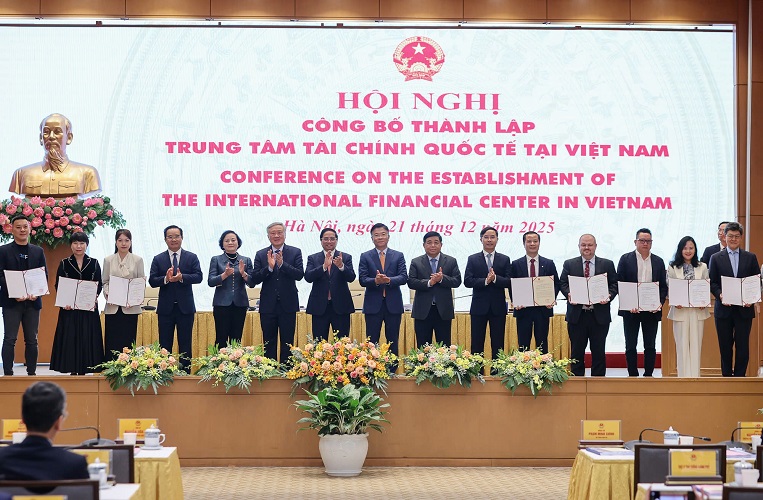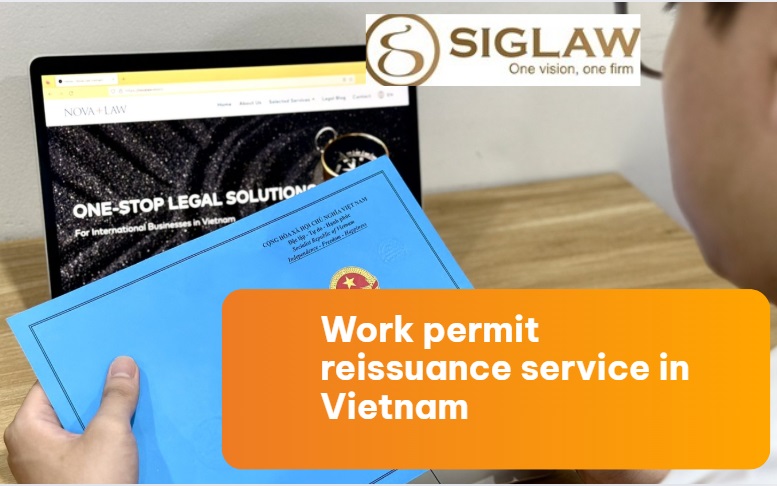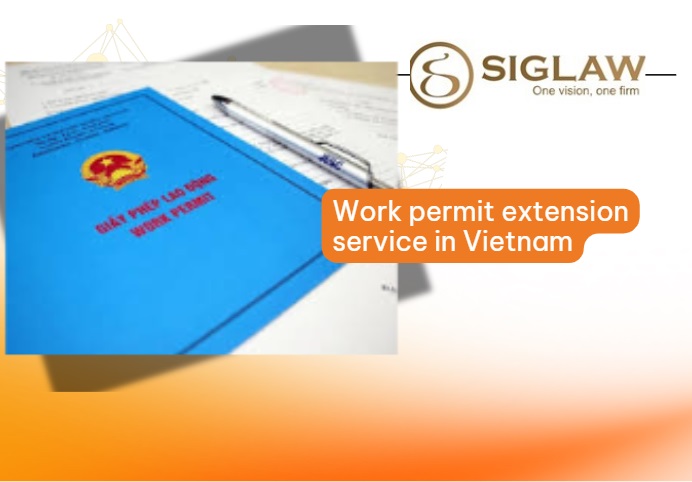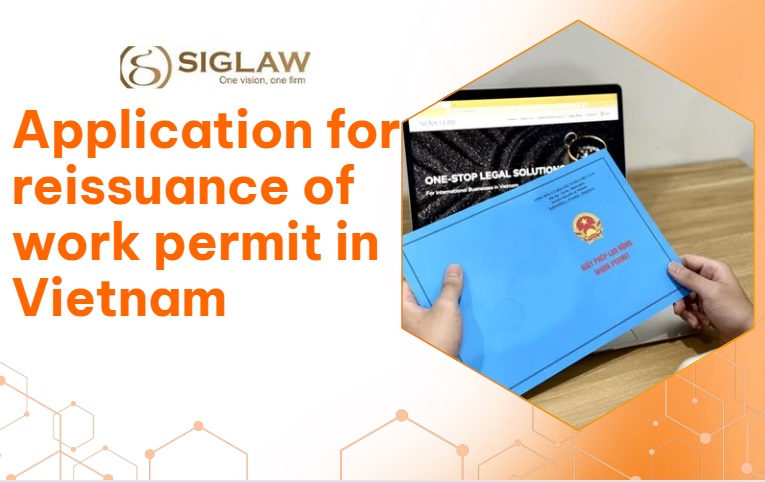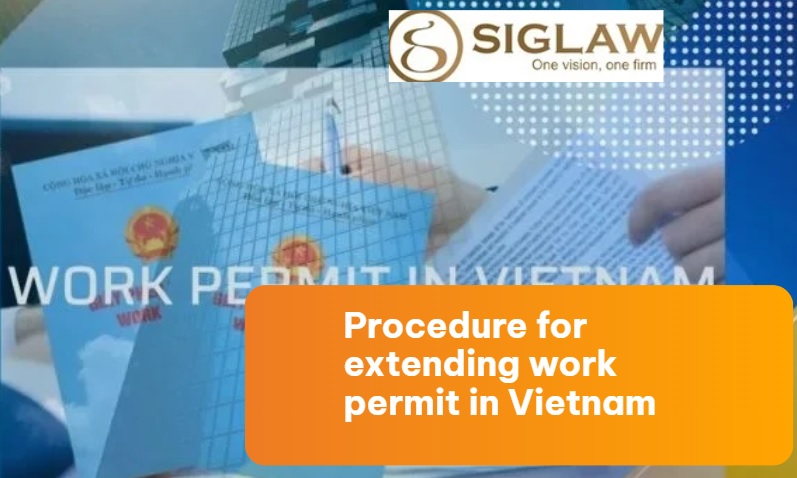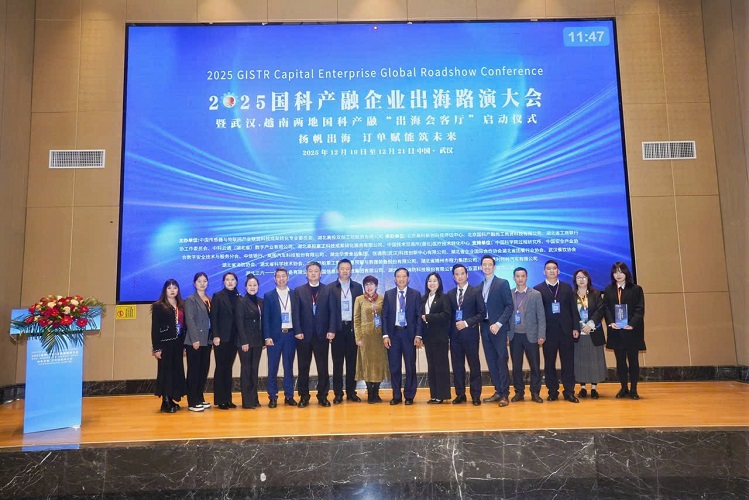CIVIL LITIGATION LAWYER AND SOME THINGS TO KNOW
When hiring a litigation lawyer through a law firm for civil cases, clients need to carefully research in order to protect their rights and interests in civil disputes. In this article, Siglaw will share some important things to know when hiring a litigation lawyer for civil cases.
What is a civil case?
Civil cases refer to disputes between parties in the field of civil law (such as property sales contracts, business contracts, etc.) where the parties involved in the dispute can request legal representation to protect their lawful rights and interests by filing a lawsuit before a competent court or by representing themselves.
Basic things about disputes related to civil cases:
Procedures, documents, and time for resolving civil case disputes in court:
Step 1: Prepare a dossier including: the lawsuit petition; civil contract or document, transactional documents equivalent to the civil contract; appendix to the contract (if any); documents on collateral for contract implementation (if any, such as pledge, mortgage, assets); documents on contract implementation (for example: acceptance minutes, payment vouchers, working minutes on overdue debts; contract liquidation minutes); witness statements; documents on the legal capacity of the plaintiff, the parties involved, and other related parties (for example: ID card/passport; business registration certificate, decision on enterprise establishment, business registration certificate; operating charter, appointment or appointment decision of enterprise representative, ..); documents on other transactions (if deemed necessary); a list of the accompanying documents submitted with the lawsuit petition (clearly indicating the number of originals and copies).
Note: The above-mentioned documents, if they are in a foreign language, must be translated into Vietnamese by a competent translation agency or organization, and accompanied by the original version.
Step 2: Submit the lawsuit petition to the court where the individual resides or the organization has its workplace.
Step 3: The Chief Judge assigns a judge to review the lawsuit petition within 03 days from the date of receipt of the petition. Then, within 05 days from the date of receiving the assignment, the judge will make one of the following decisions:
- Request to amend and supplement the lawsuit petition if necessary (within 01 month), and once the amendment is completed, the case will be accepted for trial.
- Return the lawsuit petition. The petitioner may file a complaint within 10 days from the date of receiving the returned petition.
- Transfer the lawsuit to another competent court if it is not under the jurisdiction of the receiving court.
- Accept the case for trial if the case meets the conditions for trial. Issue a notice of acceptance within 03 days from the date of the decision to accept the case, and assign a judge to handle the case.
Step 4: The case will be prepared for first-instance trial (maximum preparation time is 02 months for commercial disputes; maximum preparation time is 04 months for civil disputes). At this point, if the case is settled, a decision recognizing the settlement agreement will be issued. If the case cannot be settled, a decision to bring the case to trial will be issued, and within 01 month (or 02 months if there is a justifiable reason) from the date of the decision to bring the case to trial, the first-instance trial session will be held.
Step 5: Hold the first-instance trial for the civil case.
Step 6: Hold the appellate trial for the civil case: If one of the parties disagrees with the decision of the first-instance trial, within the period when the decision of the first-instance trial is not yet effective (15 days from the date of the verdict, or 10 days from the date of receiving the judgment for absent parties), they may file an appeal to hold the appellate trial for the civil case. The deadline for the appellate trial is: submitting the appeal and receiving the fee payment notice within 10 days; making payment within another 10 days; the deadline from the date of the decision to accept the case until the opening of the appellate trial session is 04 months.
Step 7: Hold the directorial review trial for the civil case: If, after the decision of the appellate trial, one of the parties is still dissatisfied, the civil case may be appealed by the competent authority within 03 years from the date of the verdict or the legal effective decision of the appellate court.
Procedures, documents, and time for resolving civil disputes through arbitration:
Usually, the arbitration procedures will comply with the Rules of Procedure of each arbitration center, but in general, the procedures for resolving civil disputes through arbitration can be summarized as follows.
Step 1: Unless otherwise provided by specialized laws, within 02 years from the date of infringement of rights and interests, the plaintiff may prepare a dossier to initiate arbitration, which includes:
- For arbitration at an arbitration center, the plaintiff must submit the lawsuit petition to the arbitration center.
- For ad hoc arbitration, the plaintiff must prepare the lawsuit petition and send it to the respondent.
Step 2: Establish the arbitration council: The plaintiff or the respondent selects an arbitrator or the arbitration center designates an arbitrator.
Step 3: The arbitration council studies the dossier provided by the plaintiff and the respondent.
Step 4: Hold a hearing to resolve the dispute. The location of the arbitration for civil disputes through arbitration is agreed upon by the two parties, or decided by the arbitration council if they cannot come to an agreement. The language used to resolve civil disputes through arbitration is Vietnamese (if there are no foreign elements), or as agreed upon by the parties (if there are foreign elements), and if there is no agreement, the arbitrator will decide.
Step 5: Issue the arbitration award. The arbitration award is final and cannot be appealed, and the parties can only request to have the award revoked.
The time for resolving civil disputes through arbitration depends on each arbitration center.
The task of a civil litigation lawyer
The task of a civil litigation lawyer is to serve as a legal representative for clients in litigation procedures in court or, more importantly, to effectively resolve disputes. Lawyers have extensive legal knowledge in civil and commercial matters as well as extensive experience in resolving complex legal issues that clients may encounter.
The tasks of a civil litigation lawyer include:
- Representing clients in court to protect their rights and interests.
- Participating in meetings and negotiations with the opposing party’s representatives to resolve disputes.
- Preparing documents and evidence for litigation.
- Representing clients in litigation procedures in court.
What does a civil litigation lawyer do?
- A civil litigation lawyer resolves disputes related to civil matters such as civil disputes and contractual disputes.
- They provide legal advice related to civil litigation cases.
The benefits of hiring a litigation lawyer for a civil case
The time to hire a litigation lawyer for a civil case is when the plaintiff, petitioner or defendant:
- Needs representation in court or to resolve a legal dispute,
- Encounters difficulties in understanding the legal aspects related to civil litigation and lacks knowledge to resolve them, or
- Wants to avoid unnecessary risks when resolving legal disputes.
If a client, who needs legal advice, is still hesitant about hiring a litigation lawyer for a civil case, they may consider some of the benefits that a litigation lawyer can bring:
- Peace of mind: Having a professional lawyer by their side can help the client feel more at ease.
- In-depth legal knowledge: A litigation lawyer has extensive legal knowledge and practical experience in complex legal issues, making them capable of helping to resolve any civil legal issues the client may face.
- Optimization: In civil lawsuits, a lawyer will help the client achieve the best possible results, finding advantages for them to avoid being taken advantage of during the legal process.
How to choose and hire a good litigation lawyer for a civil case?
Although there are many litigation lawyers for civil cases, not everyone can become a good lawyer who can best support and protect your rights and interests. To find a good litigation lawyer for a civil case, you should consider the following factors:
- Experience: You should choose a lawyer who has many years of experience in resolving civil cases, especially those similar to your case. These lawyers should have at least 10 years of experience because this is the time when they have accumulated a lot of practical experience from different cases, and they can find the best, fastest, and most effective way to resolve your case.
- Honesty and professionalism: choosing to hire a professional and customer-oriented litigation lawyer for a civil case is fortunate. You do not want to encounter fraudulent lawyers who only work for money without caring about the interests of their clients.
- Working style: the best and luckiest thing you can experience is to find a lawyer with the same working style as yours. This can help you and the lawyer work together easily and understand each other better. However, a professional and experienced lawyer is also sufficient to meet your needs.
- Research and comparison: this is the most effective way for you to have an objective view of litigation lawyers for civil cases, and then choose the most suitable lawyer for you.
Things to consider when hiring a litigation lawyer for a civil case:
- Cost: Lawyers work on knowledge, and their work can be very intensive and stressful because they have to study a vast and complex legal system, sometimes overlapping, and also study the development of civil cases to provide the best protection for you. Therefore, the cost of a lawyer is usually high. However, sometimes hiring a lawyer may be the shortest way to help you ensure your rights because of their professional experience, so the cost may be high, but the results are worth it and the case can be resolved quickly and efficiently.
- Time: All disputes must go through a certain period of time specified by law, sometimes the court and competent authorities have to handle a lot of cases in a day, and the workload is endless. In addition, sometimes you will need to spend some time attending meetings and court sessions as required by law, otherwise the case may be suspended or prolonged, which is not what you want. However, you can consider delegating the right to your lawyer to participate in these meetings if they are allowed.
- Emergency situations: If you are in an urgent situation that requires the resolution of a civil case, a lawyer can also help you with their many years of experience in the legal field.
Alternative measures to hiring a litigation lawyer for a civil case:
Aside from a litigation lawyer for a civil case, you can also choose other options depending on your circumstances and needs:
- Legal aid centers: These centers can provide you with free advice and information on all issues related to your civil case.
- Arbitration centers: In addition to lawyers, arbitrators can also help you resolve your civil case, ensuring the rights and interests of both parties.
- Online lawyers: These lawyers are a reliable source of advice, and in most cases, they do not charge for their advice. However, you should also be cautious of “bad” lawyers or fraudsters.
The path to becoming an experienced litigation lawyer for civil cases:
- Step 1: Spend 4 years studying law at a law school and obtain a bachelor’s degree in law.
- Step 2: Attend a lawyer training course at the Judicial Academy for about 1 year. After that, complete an internship for 1 year. After completing the internship, passing the Lawyer’s License Exam is required to practice law. This phase is difficult because the chances of passing the exam are not high.
- Step 3: Practice law at a law firm for about 3-10 years to accumulate experience in civil litigation cases. In addition, it is necessary to self-study and learn more about litigation.
- Step 4: Continue practicing law until retirement to further enhance one’s reputation and credibility.
So the path to becoming an experienced litigation lawyer for civil cases is quite difficult, unlike other fields such as civil law or marketing, which only require 4 years of study to practice. Lawyers have to spend an additional 3 years practicing law, and then continue to build their experience and reputation.
Therefore, being a lawyer, especially a litigation lawyer, is a difficult profession. Clients are urged to be understanding and empathetic towards their lawyers when seeking their services.
Costs for resolving disputes and hiring a litigation lawyer for civil cases:
Fees and expenses for resolving disputes in court
According to the latest regulations of 2023 – Resolution 326/2016/UBTVQH14, the schedule of court fees for civil cases is as follows:
| 1 | Civil case trial fees | Payment level |
| 1.1 | For disputes related to civil, marriage and family, labor without a price level | 300,000 VND |
| 1.2 | For disputes related to business, trade without a price level | 3,000,000 VND |
| 1.3 | For disputes related to civil, marriage and family with a price level | |
| a | From 6,000,000 VND or less | 300,000 VND |
| b | From over 6,000,000 VND to 400,000,000 VND | 5% of the disputed property value |
| c | From over 400,000,000 VND to 800,000,000 VND | 20,000,000 VND + 4% of the disputed property value exceeding 400,000,000 VND. |
| d | From over 800,000,000 VND to 2,000,000,000 VND | 6,000,000 VND + 3% of the disputed property value exceeding 800,000,000 VND |
| dd | From over 2,000,000,000 VND to 4,000,000,000 VND | 72,000,000 VND + 2% of the disputed property value exceeding 2,000,000,000 VND |
| e | From over 4,000,000,000 VND | 112,000,000 VND + 0.1% of the disputed property value exceeding 4,000,000,000 VND. |
| 1.4 | For disputes related to business, trade with a price level | |
| a | From 60,000,000 VND or less | 3,000,000 VND |
| b | From over 60,000,000 VND to 400,000,000 VND | 5% of the disputed value |
| c | From over 400,000,000 VND to 800,000,000 VND | 20,000,000 VND + 4% of the disputed value exceeding 400,000,000 VND |
| d | From over 800,000,000 VND to 2,000,000,000 VND | 36,000,000 VND + 3% of the disputed value exceeding 800,000,000 VND |
| dd | From over 2,000,000,000 VND to 4,000,000,000 VND | 72,000,000 VND + 2% of the disputed value exceeding 2,000,000,000 VND |
| e | From over 4,000,000,000 VND | 112,000,000 VND + 0.1% of the disputed value exceeding 4,000,000,000 VND. |
| 1.5 | For disputes related to labor with a price level | |
| a | From 6,000,000 VND or less | 300,000 VND |
| b | From over 6,000,000 VND to 400,000,000 VND | 3% of the disputed value, but not less than 300,000 VND |
| c | From over 400,000,000 VND to 2,000,000,000 VND | 12,000,000 VND + 2% of the disputed value exceeding 400,000,000 VND |
| d | From over 2,000,000,000 VND | 44,000,000 VND + 0.1% of the disputed value exceeding 2,000,000,000 VND |
| 2 | Civil Litigation Fees for Appeal | |
| 2.1 | For disputes related to civil, marriage and family, and labor | 300,000 VND |
| 2.2 | For disputes related to business and trade | 2,000,000 VND. |
Fees and Expenses for Resolving Civil Cases at Arbitration
The basis for calculating arbitration fees at the Vietnam International Arbitration Centre is as follows:
In cases where disputes are resolved by an Arbitration Council consisting of three arbitrators:
| Value of dispute | Arbitration Fee (include VAT) |
| Up to 100,000,000 VND | 16,500,000 |
| From 100,000,001 VND to 1,000,000,000 VND | 16,500,000 VND + 7.7% of the amount exceeding 100,000,000 VND. |
| From 1,000,000,001 VND to 5,000,000,000 VND | 85,800,000 VND + 4.4% of the amount exceeding 1,000,000,000 VND. |
| From 5,000,000,001 VND to 10,000,000,000 VND | 261,800,000 VND + 2.75% of the amount exceeding 5,000,000,000 VND. |
| From 10,000,000,001 VND to 50,000,000,000 VND | 399,300,000 VND + 1.65% of the amount exceeding 10,000,000,000 VND. |
| From 50,000,000,001 VND to 100,000,000,000 VND | 1,059,300,000 VND + 1.1% of the amount exceeding 100,000,000 VND. |
| From 100,000,000,001 VND to 500,000,000,000 VND | 1,609,300,000 VND + 0.50% of the amount exceeding 100,000,000,000 VND. |
| From 500,000,000,001 VND | 3,609,300,000VND + 0.30% of the amount exceeding 500,000,000,000 VND. |
- In the case of disputes resolved by a sole arbitrator, the arbitration fee is 70% of the arbitration fee for the same value of the dispute resolved by a panel of arbitrators.
Fees and costs when hiring a litigation lawyer in economic cases
You can refer to the following fee tables, but the actual fees may vary depending on the law firm, the severity of the case, and the value of the losses involved, as well as the agreement between the lawyer and the client:
- Fees can range from 30,000,000 VND per case depending on the nature of the case.
- For cases where the lawyer and the client agree on the fees, the fees may be 30%, 20%, or 10% of the value of the case. For example, if a client is defrauded of 5 billion VND, and the lawyer and the client agree on a fee of 30%, the lawyer’s fee could be up to 1.5 billion VND, to be paid after the case is resolved. It should be noted that this high fee includes everything from consultation, resolution, support for related issues, fees for relevant authorities, etc., so this fee is still reasonable based on the experience and large volume of work that the lawyer has to handle. In addition, the time it takes to resolve economic cases is not short, it can take months or even years, with some cases taking up to a decade, so this fee is entirely reasonable.
Benefits of Siglaw Law Firm when hiring a litigation lawyer in economic cases:
- Free legal consultation
- Commitment to completing the work on schedule and in the fastest time in the market.
- Commitment to reasonable and most cost-saving fees in the market and no additional costs incurred during the provision of services.
- 100% completion of work on schedule and time.
- Ready to provide legal support 24/7 when customers need it with the enthusiastic, caring, and meticulous support of Siglaw’s legal experts.
_________________________________________________
The above is the advice of Siglaw Law Firm. If you need further advice, please contact:
Phone: (+84) 961 366 238
Email:
- vphn@siglaw.com.vn
- vphcm@siglaw.com.vn
Headquarters: No.44/A32-NV13, Gleximco A, Le Trong Tan Street, Tay Mo Ward, Ha Noi.
Southern branch: No.103 – 105 Nguyen Dinh Chieu Str., Xuan Hoa Ward, Ho Chi Minh.
Central branch: 177 Trung Nu Vuong, Hai Chau District, Da Nang City
Facebook: https://www.facebook.com/hangluatSiglaw



